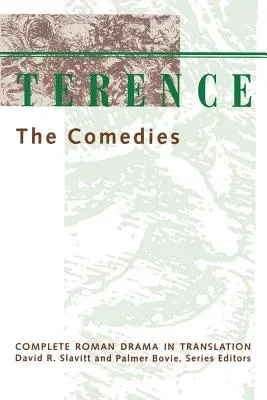The works of Terence have been part of the world's heritage of dramatic
literature for more than two thousand years--and they are still being
staged and enjoyed. In English translations that achieve a lively
readability without sacrificing the dramatic and comic impact of the
original Latin, this volume presents all six comedies: The Girl from
Andros (Andria), The Self-Tormentor (Heautontimorumenos), The Eunuch
(Eunouchus), Phormio, The Brothers (Adelphoe), and Her Husband's
Mother(Hecyra). Publius Terentius Afer--our Terence--was a slave from
North Africa, brought as a boy from Carthage and sold to a wealthy Roman
named Marcus Terentius Lucanus. Recognizing the boy's natural charm and
genius, Marcus Terentius had Terence educated along with his own
children and eventually set the gifted young man free. Terence took to
his education in Latin and Greek literature and was soon writing plays
of his own--Roman comedies in Latin poetry, based on Greek models. The
plays were performed for Romans from every walk of life, who crowded the
improvised theaters on festival days. Before his death by shipwreck at
age thirty-six--on a voyage to Greece in search of manuscripts by
Menander--he had become one of Rome's most popular comedic playwrights.
To Terence, "nothing human is foreign." His comedies revel in the
complex relationships and amusing cross-purposes of typical "worthies"
and their interfering friends. Lovers survive nerve-wracking comic
trials. Young men, helped by their stoic slaves, reconcile with angry
fathers and uncles. Tutors, lawyers, and middlemen--the
"unworthies"--are content to play both ends against the middle.
Terence's engaging portrayals of the "generation gap" and othertimeless
subjects conquered an unruly Roman populace--and, in these translations,
will captivate modern readers.

